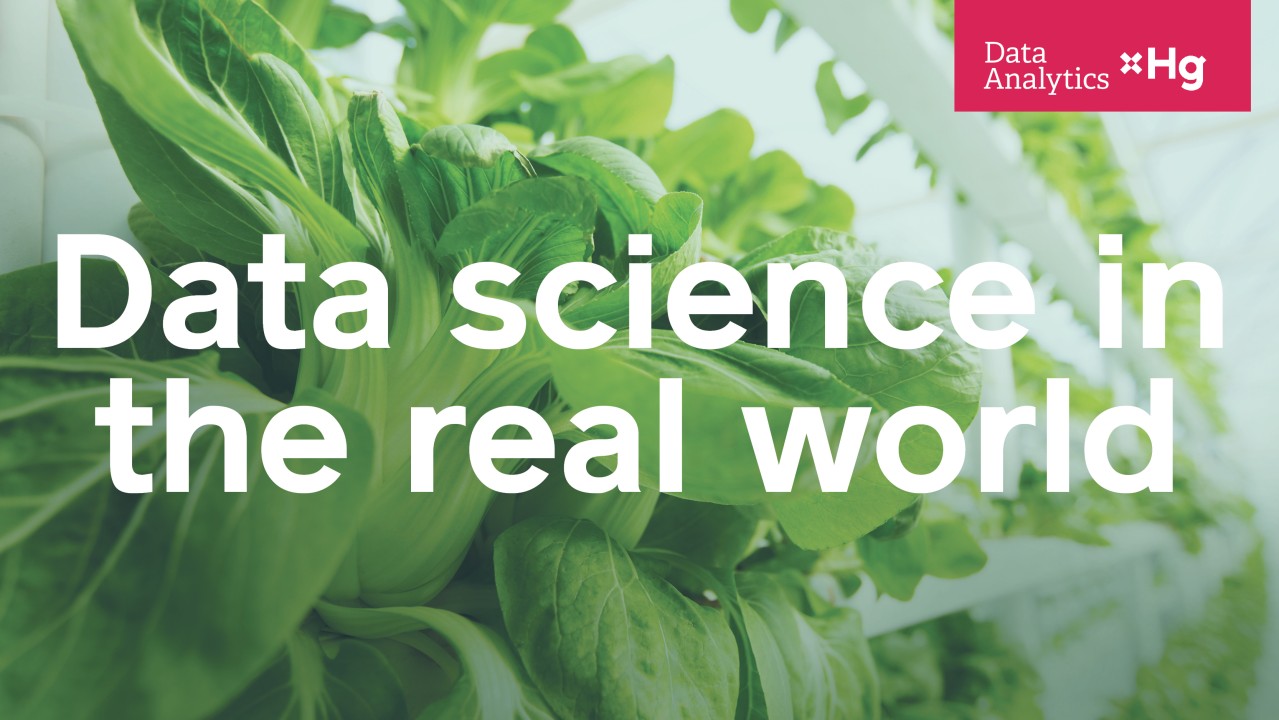
Top tips for getting value from Data Science in the real world
At Hg we believe that harnessing data science and AI should be core to how value is created in business. In my latest insight, Hg's Data Analytics team and I offer our ‘top tips’ for achieving operational impact 'in the real world' from data science.
You can find my full insight on the Hg website here.
Each point here glosses over lots of nuance and some significant exceptions. We suspect many would also have lots to add to our list! But the common thread for us is that data science should ‘just’ be treated as another core business tool leaders have in their arsenal to drive value growth. So, don’t be fooled by the hype (it’s not magic!) nor be put off by it (it’s not rocket science!). Deployed pragmatically to the core of the business it is now ready to drive transformative value impact.
Here they are, let me know what you think:
Resist intellectual perfection
Simpler models are better in the real world. A linear regression is many times easier to explain and get adopted – and often only fractionally less effective. We’ve yet to see a sensible place to use deep learning.
Start with a simple crowd pleaser
There will be sceptics, and you have plenty to learn at the start about the data and how things really work. Bite off a small chunk that generates a very visible (if more modest) impact that then buys you the support you need for the real change management to come.
Even when you start small, don’t forget to look ahead
You need to know where the data journey will go — and therefore what infrastructure is needed, what data sets might become useful, and the kind of team needed to operate it. So invest the time upfront to gather those broader data opportunities and set a rough roadmap.
Avoid getting trapped in an IT silo
Unless the ‘business’ co-owns the data project, the implementation and change management effort becomes harder. And get their commitment — plan the operational changes upfront, define the KPIs to measure, and set targets.
Data is invariably imperfect
But that doesn’t mean it doesn’t contain valuable signals once it’s scrubbed and distilled. And it’s also invariably more challenging and skewed than you get told — be critical, spot what’s bias and what’s noise. The unglamorous secret is that data wrangling and cleaning is 80% of what we do.
Data Culture
Real ‘data transformation’ of a business is impossible without a ‘data’ culture. And that requires designing the data projects to be highly accessible — it’s not just simpler models, but also intuitive tooling and offering training. If you can go beyond having a small central team of data specialists, to ‘citizen data scientists’ in each function you’ll get real lift-off.
Embrace the cloud
Don’t get trapped by tech that might already exist today, but is fundamentally not future proof. You will regret it as the data work takes off, and the longer your leave it the more painful it gets!
Don’t (yet!) believe the hype of automated data science
These platforms remain overly simplistic and narrow, they’re no substitute for getting into the code. And getting your hands dirty is OK — it’s not the painful, complex problem vendors might suggest.
AWS, Azure or GCP?
Though this might be heresy to some … we think all 3 can be more than good enough (well, in most cases). Instead, what’s key is how you set up these platforms: these have matured into broad, powerful and now complex ecosystems — ensure you have (or borrow!) the expertise needed to select the ingredients you need to concoct your future-proof data platform.
Invest in data governance
…to ‘bottle’ that initial data cleanse. Some core tools & validation processes will provide the basics. But ultimately it also requires creating a culture of data stewardship, driven by the business and its leadership. For example, best-in-class Hg CCOs bonus sales staff on how complete their CRM data is.
It takes months of live testing
…to refine the model and optimize how it’s used. You’re not done just because it's built.
Be careful how you use external help
…(and that includes our Hg team!). These are core skills to have within any business. So, consultants are great to jump-start your journey, or help with specialist topics. But at least one data specialist should be on the ground when you start your first data project.
For those who are interested, Hg’s Data Analytics team have created an interactive ‘Data Mindmap’ to help other to avoid getting bogged down in the terminology. Open the Interactive Mind Map here.
This is a great article on data science Christopher Kindt and those in Professional Services firms starting to explore this topic would benefit from reading it (there is certainly enough hype there). The interactive mind map you have put together is a really good resource. The element I would add is that whether you are a service or a product business you need to connect your data strategy to your product strategy so that you are sure you are addressing genuine pain points whether this is around internal operations efficiency or in the client offerings (many default to internal optimisation when there is so much value in using data science with an externally facing view).